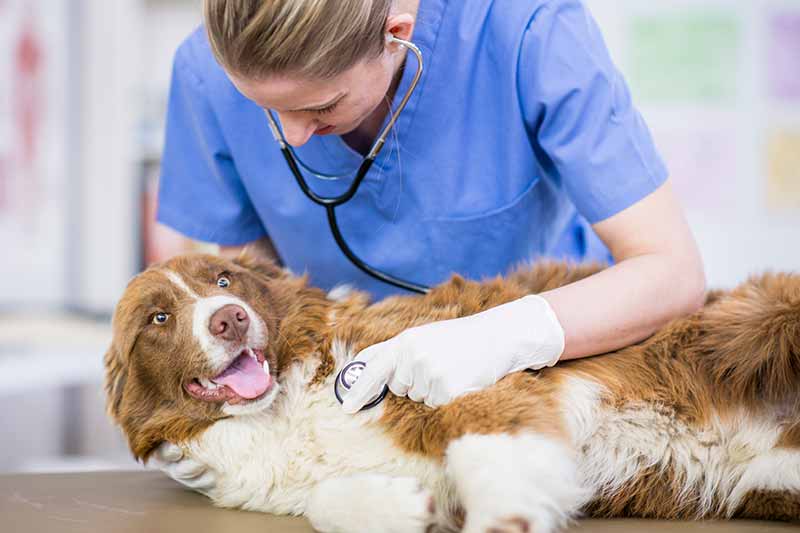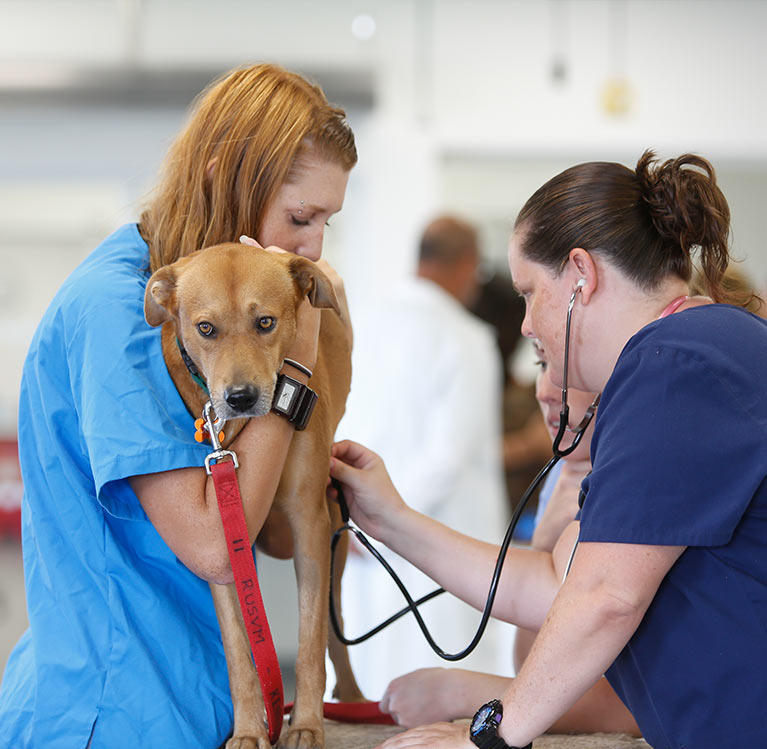Keep Your Pet Healthy with Regular Pet Health Checkups from Trusted Vets
Wiki Article
Inoculation Guidelines From Your Relied On Vet
Inoculation standards given by your relied on vet play a vital function in guarding your animal's health and wellness and well-being. Core vaccinations are basic for all animals, while non-core vaccines can be tailored to particular way of lives and environmental exposures. Recognizing the nuances of inoculation schedules, which start as early as 6 to eight weeks, is necessary for optimum security. Furthermore, attending to usual false impressions surrounding vaccinations can additionally improve animal proprietors' self-confidence in these safety nets. As we explore these critical elements, it becomes significantly clear why regular consultations with your vet are indispensable for notified decision-making.
Significance of Vaccinations
Vaccinations play a crucial duty in securing pets against a series of avoidable conditions. By boosting the immune system to acknowledge and combat details virus, injections dramatically reduce the occurrence of transmittable diseases that can influence a family pet's health and long life. Not just do inoculations shield specific animals, yet they additionally add to herd resistance, consequently lowering the overall frequency of conditions in the family pet populace.Prompt inoculations aid to mitigate the spread of diseases such as rabies, parvovirus, and distemper, which can have extreme repercussions for both people and pets. Moreover, inoculations are usually a need for boarding facilities, brushing solutions, and dog parks, making them vital for those that want to socialize their animals.

Core Injections for Pets
While the specific inoculation requirements of animals can differ based on specific aspects, core vaccines are globally suggested to protect versus the most major and typical conditions (Veterinarian Enterprise). Core vaccinations are those considered necessary for all pet dogs, despite their way of living or geographic area, as they guard against very infectious and possibly fatal illnessesFor pet dogs, the core injections consist of those for canine distemper, parvovirus, adenovirus (liver disease), and rabies. Adenovirus can result in liver condition, while rabies is a zoonotic disease that postures a risk to both human beings and animals.
In cats, core vaccines encompass feline panleukopenia, feline calicivirus, feline herpesvirus (rhinotracheitis), and rabies. Feline panleukopenia is an extremely transmittable viral disease that affects the immune system and intestines. Calicivirus and herpesvirus are major factors to upper respiratory system infections in cats, while rabies remains an important concern for public health.
Speak with your veterinarian to ensure your pet dogs obtain their core inoculations on time.
Non-Core Vaccines Explained
Non-core vaccinations are customized to resolve specific threats connected with a pet's lifestyle, environment, and exposure to certain conditions. Unlike core vaccines, which are universally advised for all pet dogs, non-core injections are considered based upon specific conditions. These injections are specifically important for pets that might come across special virus because of their geographical location, traveling habits, or activities.Examples of non-core injections include those for Bordetella bronchiseptica, which is connected to kennel cough, and Lyme condition, brought on by ticks. Family pets that regularly connect with various other pets, such as those in boarding facilities, canine parks, or grooming settings, may profit from Bordetella vaccination. Likewise, if you live in a location where Lyme disease is common, vaccinating against this condition can be a sensible choice for outdoor-loving canines.
Other non-core injections may consist of those for leptospirosis, canine flu, and feline leukemia, depending on the certain risk elements existing. It is important to have a thorough discussion with your veterinarian regarding your pet dog's lifestyle and the possible requirement for these vaccines, guaranteeing a customized inoculation technique that ideal safeguards your hairy pal.
Inoculation Schedule Introduction

As animals grow, it is essential to abide by the suggested booster inoculations. Vet Enterprise. For grown-up pets, core vaccinations are commonly given each to three years, depending on the details vaccine and local policies. Non-core injections may be recommended based on way of life variables and local illness occurrence, demanding a customized strategy
Regular veterinary examinations are critical for upgrading inoculation timetables. straight from the source Your vet can provide assistance on the most proper booster shots for your pet, considering age, wellness standing, and ecological threats. By remaining aggressive and educated, pet dog proprietors can guarantee their fuzzy buddies get prompt and efficient vaccinations, thereby securing their health and wellness and wellness throughout their lives.
Usual Misconceptions Concerning Vaccinations
Mistaken beliefs regarding family pet vaccinations can bring about confusion and unwillingness amongst animal owners regarding the immunization procedure. One widespread myth is that vaccines are unnecessary for indoor animals. While it holds true that interior family pets deal with reduced threats, they are not totally immune to conditions, as virus can be presented via different means, consisting of human garments and various other family pets.Another mistaken belief is that vaccines can create the diseases they intend to avoid. Actually, the majority of injections consist of inactivated or undermined pathogens, which can not create condition in healthy and balanced pets. Some animal proprietors also believe that their pet dogs ought to not be immunized if they are already healthy and balanced; nonetheless, vaccinations are an aggressive step that aids avoid the beginning of disease.
In addition, numerous pet dog owners fear that vaccinations will cause lasting health complications. While website link negative effects can occur, they are momentary and typically moderate. The advantages of inoculation-- securing pets from potentially life-threatening illness-- much outweigh the dangers. Understanding these common myths is important for accountable family pet possession and ensuring the health and wellness and safety and security of your fuzzy friends. Constantly consult your veterinarian for accurate information tailored to your animal's details needs.
Conclusion
In summary, adherence to vaccination guidelines is important for making sure the health and wellness and durability of animals. Core vaccinations provide essential protection versus severe conditions, while non-core vaccinations resolve certain dangers based on private way of lives. Developing a detailed inoculation routine, together with regular vet exams, assists in ideal health and wellness administration. Dispelling usual misconceptions surrounding vaccinations further enhances the value of informed decision-making in pet care. Inevitably, a positive approach to inoculations is vital for preserving pet wellness.Not only do inoculations protect private pets, but they likewise add to herd immunity, consequently minimizing Check This Out the general frequency of illness in the pet dog population.
Mistaken beliefs regarding pet dog vaccinations can lead to complication and unwillingness amongst family pet owners relating to the immunization process. While it's real that interior animals encounter lower risks, they are not totally immune to illness, as pathogens can be introduced via different methods, consisting of human clothes and other pet dogs.
Some animal proprietors also believe that their family pets need to not be vaccinated if they are currently healthy and balanced; however, vaccinations are a positive action that helps avoid the beginning of ailment.
The advantages of vaccination-- shielding pets from potentially lethal conditions-- far exceed the threats.
Report this wiki page